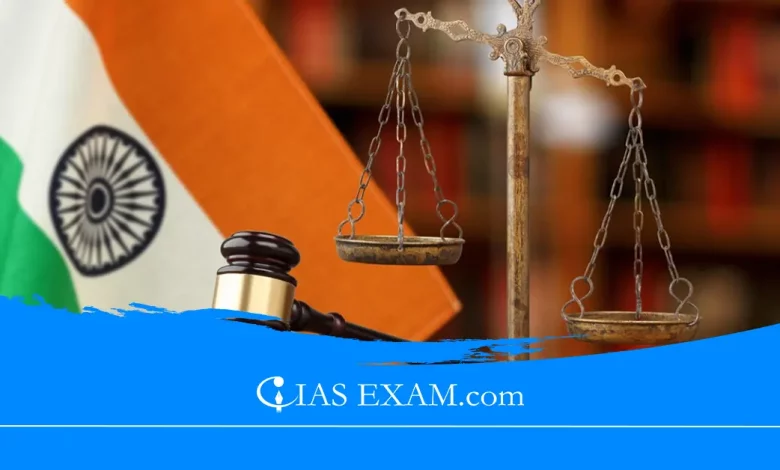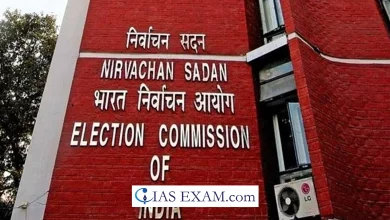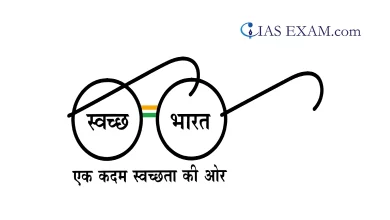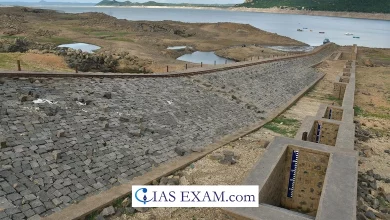Bail System in Indian Judiciary – Challenges and Prospects
GS Paper 2 - Indian Polity, Executive & Judiciary

Context
The Bail System in India faces significant challenges, resulting in a large number of undertrials remaining in prison despite being granted bail. The complexities of complying with bail conditions, especially for marginalized individuals, exacerbate the situation.
Bail Provisions in India
- What is Bail? – The conditional release of s defendant with the promise to appear in court when required. It also refers to the security deposit to secure the release of the accused.
- Types of Bails –
- Regular Bail – Granted to a person in Police custody, applied for under Section 437 and 439 of CrPC.
- Interim Bail – Short-term bail granted before the hearing fore regular or anticipatory bail.
- Anticipatory Bail – Granted under Section 438 of CrPC by session courts or High Courts, to avoid potential arrest for a non-bailable offense.
- Section 436 states that accused of a bailable offense under IPC can be granted bail if:
- There’s reason to believe the accused didn’t commit the offence.
- There’s a need for further inquiry.
- Accused isn’t charged with an offense punishable by death, life imprisonment, or up to 10 years’ imprisonment.
- Section 437 states that the accused doesn’t have the right to apply for bail. Bail may be granted if:
- Accused is a woman or child.
- Lack of evidence.
- Delay in lodging FIR.
- Accused is gravely sick.
Challenges in the Bail System
- Delay in Bail Hearings: One of the primary challenges in the bail system is the significant delay in conducting bail hearings. The backlog of cases in Indian courts often results in prolonged detention of individuals awaiting bail, compromising their right to liberty and justice. The slow pace of bail hearings contributes to overcrowded prisons and undermines the fundamental principle of speedy justice.
- Discriminatory Practices: The bail system in India is also plagued by discriminatory practices, where access to bail may vary based on factors such as socioeconomic status, political influence, or personal connections. Marginalized and economically disadvantaged individuals often face hurdles in securing bail, leading to disparities in the administration of justice.
- Stringent Bail Conditions: In many cases, courts impose stringent bail conditions that are difficult for the accused to fulfill, thereby prolonging their detention or restricting their freedom even after being granted bail. These conditions may include exorbitant bail amounts, surrendering passports, or reporting to the police station regularly, imposing undue hardships on the accused.
- Overuse of Pre-trial Detention: The overuse of pre-trial detention is another pressing issue in the Indian bail system. Many individuals, particularly those from vulnerable communities or accused of non-violent offenses, languish in detention facilities for extended periods before their cases are adjudicated. Pre-trial detention not only infringes upon the rights of the accused but also strains the resources of the criminal justice system.
Judicial Acknowledgment and Guidelines
- Supreme Court’s Observations: The Supreme Court acknowledged the ineffectiveness of India’s bail system in the case of Satender Kumar Antil vs CBI, emphasizing the principle of ‘bail not jail’.
- Need for Legislative Action: The Court urged the enactment of separate legislation and laid down comprehensive guidelines to streamline bail procedures.
- Delayed Disposal of Applications: Despite court directives, delays in the disposal of bail applications contribute to prolonged detention of undertrials.
Prospects for Improvement
- Expedited Bail Hearings: To address the delay in bail hearings, there is a need for streamlined procedures and mechanisms to expedite the processing of bail applications. Implementing technology-enabled solutions, increasing judicial manpower, and establishing specialized bail courts can help reduce the backlog of cases and ensure prompt adjudication of bail matters.
- Ensuring Equality in Access to Bail: Efforts should be made to promote equality in access to bail by eliminating discriminatory practices and biases in the judicial system. Sensitizing judicial officers and legal practitioners about the importance of impartiality and fairness in bail proceedings can help mitigate disparities and ensure equitable access to justice for all individuals.
- Rationalizing Bail Conditions: Courts should adopt a more pragmatic approach towards imposing bail conditions, taking into account the circumstances of the accused and the nature of the offense. Bail conditions should be reasonable, proportionate, and tailored to the specific requirements of each case, ensuring that they do not unduly infringe upon the rights of the accused or impede their rehabilitation.
- Promoting Alternatives to Pre-trial Detention: Emphasis should be placed on promoting alternatives to pre-trial detention, such as bail bonds, supervised release, or electronic monitoring, especially for non-violent offenders and individuals with no history of flight or danger to society. These alternatives can help alleviate prison overcrowding and uphold the presumption of innocence while ensuring public safety.
Way Forward
- The current bail system operates on flawed assumptions about the accused’s socio-economic status, rendering ‘bail not jail’ meaningless for many.
- Meaningful bail reform necessitates a revaluation of these assumptions and a data-driven approach .
- Reform efforts should adopt a holistic approach, addressing both procedural inadequacies and socio-economic barriers to ensure equitable access to bail.
Conclusion
The bail system in the Indian judiciary stands at a crossroads, facing multifaceted challenges that necessitate comprehensive reforms and systemic changes. By addressing the underlying issues of delay, discrimination, and excessive pre-trial detention, India can strive towards a more equitable and efficient bail system that upholds the principles of justice, fairness, and human rights for all individuals involved in the criminal justice process.
SOURCE: The Indian Express





.png)



